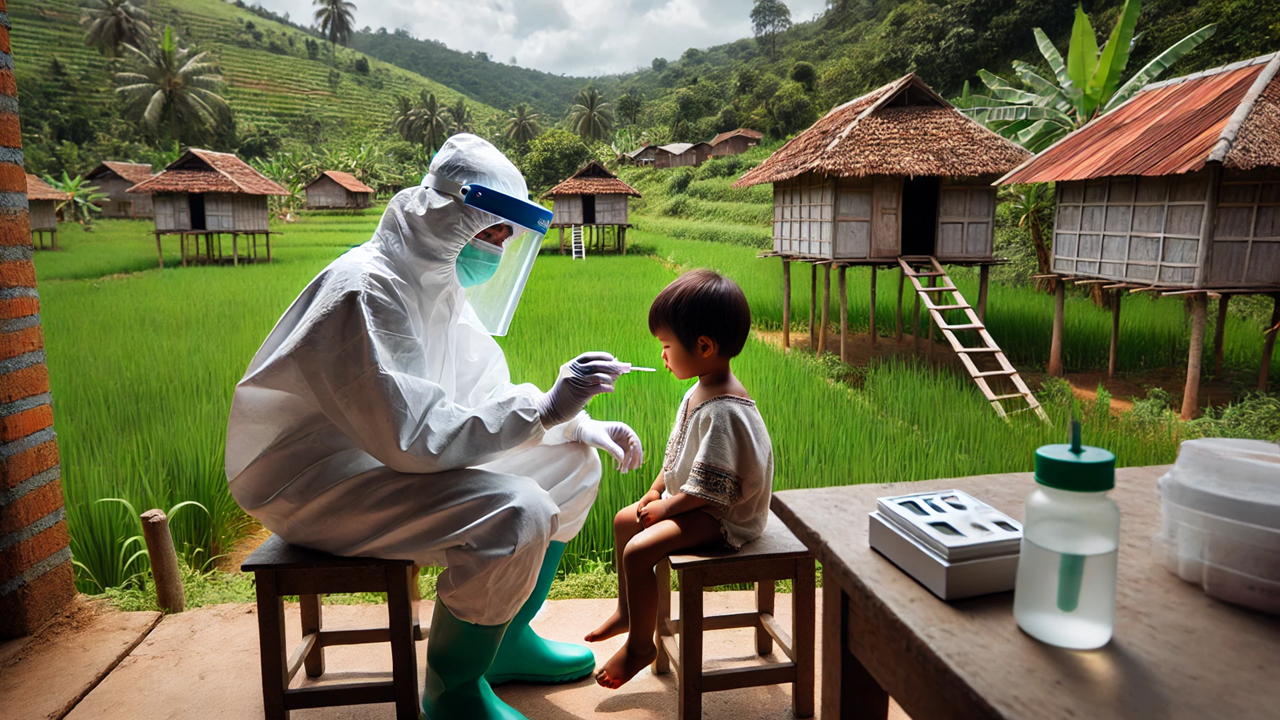Timor-Leste Declared Malaria-Free: A Historic Public Health Milestone
A key pillar of Timor-Leste’s success lies in its efforts to ensure universal health coverage, even amid severe health workforce shortages.

- Country:
- Timor-Leste
In a landmark achievement for global health, the World Health Organization (WHO) has officially certified Timor-Leste as malaria-free, recognising the Southeast Asian nation’s sustained efforts to eliminate the disease. This announcement places Timor-Leste among a select group of countries that have successfully interrupted malaria transmission, marking a profound shift in the nation's health trajectory just over two decades after it gained independence in 2002.
From Crisis to Elimination: A Rapid Transformation
Timor-Leste’s journey from a high malaria burden to complete elimination is nothing short of remarkable. At its peak in 2006, the country recorded more than 223,000 clinically diagnosed malaria cases. By 2021, it had achieved zero indigenous cases, a status it has successfully maintained for three consecutive years — the key WHO criterion for malaria elimination certification.
“Timor-Leste’s success proves that malaria can be stopped in its tracks when strong political will, smart interventions, sustained domestic and external investment, and dedicated health workers unite,” said Dr Tedros Adhanom Ghebreyesus, WHO Director-General.
With this milestone, Timor-Leste becomes the 48th country or territory globally and the third in WHO’s South-East Asia Region—after Maldives (2015) and Sri Lanka (2016)—to be certified malaria-free.
National Strategy and Early Action
The country’s success story is grounded in early and strategic intervention. Just a year after gaining independence, the Ministry of Health launched the National Malaria Programme (NMP) in 2003. Though initially staffed with only two full-time officers, the program quickly established the building blocks for elimination:
-
Technical and managerial leadership grounded in evidence-based planning
-
Introduction of rapid diagnostic tests (RDTs) and artemisinin-based combination therapy (ACT)
-
Wide distribution of long-lasting insecticide-treated nets (LLINs) to high-risk communities
-
Implementation of indoor residual spraying (IRS) to reduce mosquito populations
These interventions were further strengthened in 2009 with funding and technical support from the Global Fund to Fight AIDS, Tuberculosis and Malaria, enabling a rapid nationwide scale-up of diagnosis and vector control efforts.
Building an Inclusive and Accessible Health System
A key pillar of Timor-Leste’s success lies in its efforts to ensure universal health coverage, even amid severe health workforce shortages. The government developed a three-tiered health system, comprising:
-
National and reference hospitals
-
Community health centers (CHCs)
-
Local health posts, ensuring nearly every resident is within an hour’s walk of care
In addition, the government provides free health services at the point of care, with monthly mobile clinics and outreach programs serving rural and remote areas. This health equity approach played a pivotal role in expanding diagnosis, treatment, and prevention to every corner of the nation.
Integrated Surveillance and Community Engagement
The elimination effort relied heavily on real-time, case-based surveillance, allowing rapid detection and targeted response. Trained health workers, often drawn from local communities, were central to this system — conducting field investigations, screening at borders, and ensuring timely treatment.
Minister of Health, Dr Élia António de Araújo dos Reis Amaral, paid tribute to the collective efforts that enabled this transformation:
“We did it. Malaria has been one of our most relentless enemies – silent, persistent, and deadly. From 223,000 cases to zero – this elimination honours every life lost and every life now saved. Our communities held strong, and our partners, like WHO, walked beside us. Now, we must safeguard this victory with continued vigilance and community action.”
Collaboration and Country Ownership
Timor-Leste’s malaria elimination stands as a model for cross-sector collaboration. The coordinated efforts of the Ministry of Health, WHO, NGOs, community leaders, donors, and government institutions underscore the importance of holistic, locally driven approaches in combating infectious diseases.
Dr Arvind Mathur, WHO Representative to Timor-Leste, lauded the nation’s resolve:
“Timor-Leste’s malaria-free certification is a defining national triumph – driven by bold leadership, tireless efforts of health workers, and the resolve of its people. This victory protects generations, present and future, and shows what a determined country can achieve.”
Looking Ahead: Sustaining the Gains
Despite its malaria-free status, Timor-Leste must now focus on preventing re-establishment of transmission, particularly given the risk of imported cases. Sustained funding, continued surveillance, cross-border cooperation, and strong community awareness campaigns will be vital in preserving this hard-won success.
The WHO will continue to support Timor-Leste in its post-elimination surveillance phase, helping the country remain vigilant and resilient in the face of any future threats.
Global Impact
Timor-Leste’s elimination adds to global momentum in the fight against malaria. With only three countries in the South-East Asia Region now having achieved this status, the nation sets a strong precedent for other malaria-endemic countries in the region and beyond.
This milestone demonstrates that with determination, innovation, and unity, even resource-constrained countries can overcome major public health challenges, offering inspiration and hope to millions still at risk.
ALSO READ
Health Insurance Disparities in Southeast Asia: A Call for Equitable Access
Launch of Sattvik App: Revolutionizing Conscious Consumerism in Southeast Asia
U.S. Solar Manufacturers Push for Tariffs on Southeast Asian Imports
U.S. Solar Manufacturers Push for Tariffs on Southeast Asian Imports
Typhoon Wipha: Devastation and Recovery Across Southeast Asia










